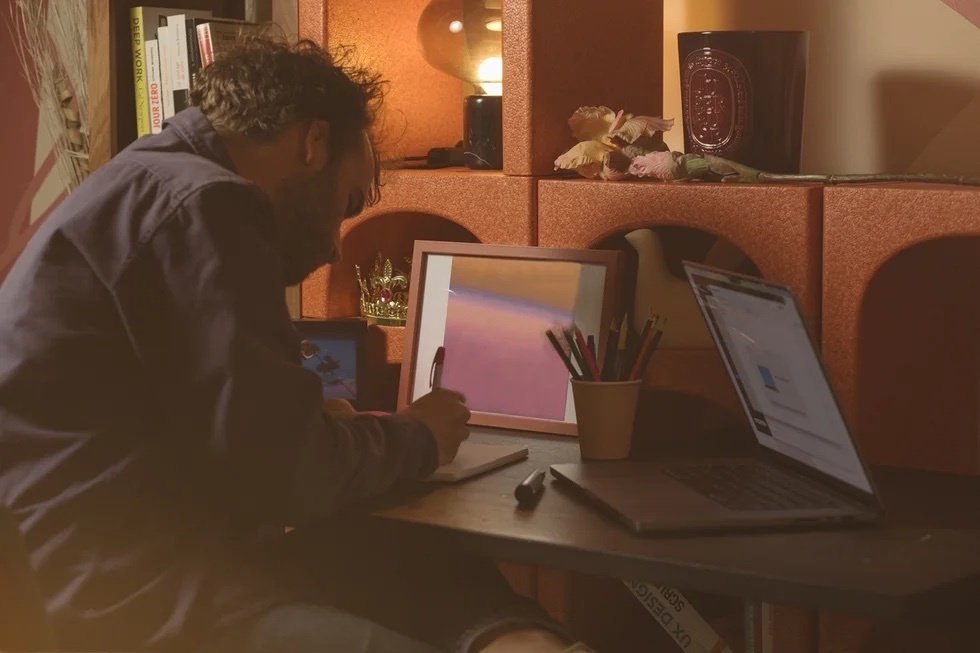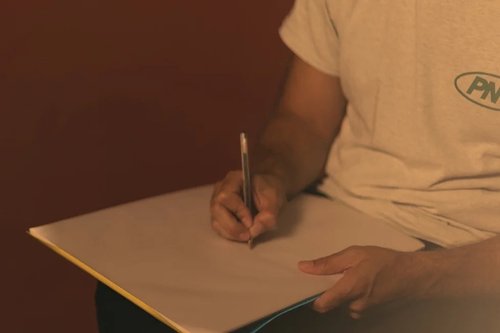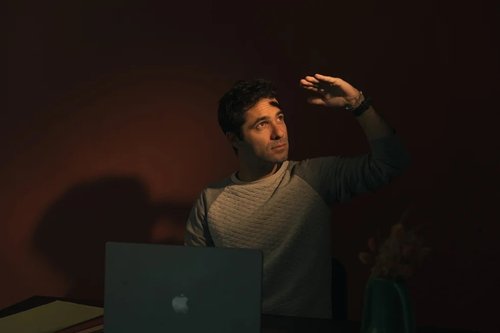Preparing for a project manager interview: Answering scenario-based questions
Aug 09, 2023
7 mins


US Editor at Welcome to the Jungle
“We’d like to invite you for an interview,” reads your email. Nice job! You’ve made it past the screening tests and managed to stand out among all the other applicants for a top job as a project manager. If the interview goes well and you land the role, you’ll be expected to handle resources, deadlines, and stakeholders while nurturing space for creative growth. But how can these qualities be assessed in an interview, you might ask? Through scenario-based questions—and we’re going to show you how to nail them.
To guide you through your interview preparations, Erik Akutagawa, a career coach and senior director of program management, and Mahati V. Singh, a leading global tech recruiter and career coach are here to help. Their experience-backed advice is top-notch and will set you up to confidently tackle these challenging interview questions.
Scenario-based questions in project manager interviews
Interviewers often use scenario-based questions to gain insights into your problem-solving abilities, decision-making process, and leadership style. These questions usually involve past experiences where you’re expected to demonstrate your approach toward solving complex problems or dealing with challenging circumstances.
Preparing your answers
According to Akutagawa, your preparation is essential to acing your project management interview. His recommendation? Have a roster of select projects ready for discussion. “Everyone needs to have three, four, maybe even five specific projects they’ve worked on and delivered that hit all the necessary points,” he advises. The key to crafting compelling narratives around these projects lies in straightforward storytelling, detailing the challenges faced and the solutions implemented. Akutagawa explains, “As part of your narrative, focus on your role in the projects and how you kept everyone aligned.” Being specific about your actions and the tools you used paints a vivid picture of your management style and how you operate within a project context.
Remember, each answer you prepare should ideally be two minutes long. The goal here is to ignite interest and trigger a deeper conversation. The interviewer should feel compelled to probe further into areas that catch their attention. Akutagawa underscores the significance of measurable outcomes: “In interviews, just as in a resume, outcomes play a huge role. Highlighting the result, such as, ‘I delivered X, and Y was the outcome,’ helps to convey your impact in a tangible way.” While you don’t need to be overly specific with numbers, providing estimates can reinforce the veracity of your claims and paint a clearer picture of your abilities as a PM.
Singh also advises showing how you align with company values. “Suppose a company demonstrates that its values are integrity and innovation. In that case, your answers must include how you were innovative in your last role, how much value you added to the firm, and how important integrity is for you.” It’s best to read the company values, research, and frame your answers beforehand.
Sample scenario-based questions and answers
If you want to put your best foot forward in your project manager interview, consider rehearsing scenario-based answers to some common interview questions. Here’s Akutagawa and Singh’s advice on how to do that.
“Tell me about yourself”
This seemingly innocuous question provides a powerful platform for you to set the interview’s tone and guide your story. Akutagawa reminds us, “It’s all about the narrative.” Craft your response in a way that tells a compelling story of your journey as a PM. Don’t forget to add why you’re interested in project management and the specific company. Akutagawa notes that “nobody starts off out of high school and says, I want to become a project manager. Everybody falls into it somehow or another.” So be prepared to share your personal journey into project management and why you’re passionate about it.
Highlight your key achievements. According to Akutagawa, you can “drop really high-level highlights as well as low lights” to this overall story. Mention the teams you led, the challenges you overcame, and the impact you made at each stop of your professional journey. Now is also your chance to highlight how your experience and values mesh with the company’s culture and mission, emphasizing your potential fit within their team. It’s also an opportunity to address any gaps in your resume. Akutagawa shares his experience, “I’ve been unemployed six times in seven years, and I can be very transparent as to why that happened.”
Akutagawa suggests that, based on your rapport with the interviewer, you could conclude your response by asking, “Is there anything specific you’d like to explore or any particular project you’d like to discuss further?” This demonstrates your readiness to delve into your experience in more detail and effectively transitions the conversation to the next topic.
Questions on leadership and leadership style
Effective leadership in project management isn’t a one-size-fits-all affair, as it influences project outcomes and team dynamics. Therefore, being able to articulate your unique leadership style is essential. Sharing your leadership journey, backed by concrete examples, can help better explain this, notes Akutagawa. “For instance, in one project, I kept the team aligned by sending out newsletters, updating dashboards, or utilizing Slack. These are short, quick, efficient strategies that offer high value for minimal time and friction investment.” He further emphasizes, “It’s not enough to just say that you led a project. Highlight the outcomes, and use data to back up your claims.” Even if the numbers are estimates, they provide verifiability.
Singh elaborates on the diversity of leadership styles, “There are various leadership styles and each has its pros and cons. Some styles may suit certain team members better, depending on their personalities, the projects at hand, and the challenges they face.” She explains that the question about leadership style is a way for the interviewer to determine if you can balance being both a manager and a leader. “Your response should confidently address the risks and benefits of your specific leadership style.” For instance, if you identify as a transformational leader, discuss how you manage the potential pressure your team could feel due to your constant involvement. If you consider yourself more of a laissez-faire or delegation leader, discuss how you ensure your team stays on track. If your leadership style is situational, give specific examples of how and when you’d adjust your approach, from supporting to coaching, delegating, or directing.
Questions on conflict-resolution
Conflicts within project teams are inevitable. How you handle these conflicts can greatly impact team morale and the project outcome. Interviewers are interested in understanding your strategies for identifying, addressing, and resolving disputes positively and constructively, especially when dealing with high-level co-workers.
Akutagawa recounts a scenario he faced while managing a high-profile project involving a heated argument between a General Manager and a Vice President. He shares his approach: “After the conflict arose during a meeting, I allowed them some time to cool down. Then, I individually reached out to each of them, inquiring about their well-being and subtly addressing the incident.” He urged them to address the ‘elephant in the room’ at the beginning of the next meeting. This step, he believed, was crucial to clear the air and to ensure everyone could focus on their tasks without walking on eggshells. “From there on out, we delivered without an issue,” he concludes.
Akutagawa recommends sharing these types of real-life scenarios during interviews. Not only do they demonstrate your conflict-resolution skills, but they also illustrate your commitment to maintaining a harmonious team environment. “It’s a tangible situation with a tangible outcome,” he adds. When responding to this question, you should demonstrate your ability to navigate difficult circumstances, ensuring successful project delivery even amidst interpersonal conflicts.
Questions on managing a remote team and keeping them motivated
Managing a remote team and keeping them motivated are critical skills for modern PMs, especially in a world where many organizations continue to adopt flexible and remote work settings. Singh suggests candidates describe the work environment they aim to cultivate for their team. This should be an environment where teammates feel valued, understood, and seen. Singh also stresses the importance of setting transparent and realistic project goals and expectations, which keeps the project on track and encourages efficient teamwork. In your response, she warns against focusing on monetary incentives like promotions or raises.
Akutagawa shares a personal experience to illustrate how to put these principles into practice. He speaks about a “coffee hour” he set up within his team—a relaxed, work-free space where team members could share personal stories or topics of interest. This initiative fostered a strong sense of community and intrinsic motivation, substantially increasing his team’s performance. Akutagawa further underlines the importance of helping team members understand the big picture and their role in it. Such an approach instills a sense of purpose and direction in team members, ensuring they stay aligned with the project objectives even while working remotely.
Questions on communicating bad news
Both Singh and Akutagawasay emphasize the importance of transparency, accountability, and adaptability when answering this question. Singh delineates, “The interviewer likely wants to find out if you have both the integrity and communication skills to deliver bad news to your team without causing misunderstandings or issues.” According to her, the best way to demonstrate this is by acknowledging the delicate balance between empathizing with the team’s emotional response and conveying the upper management’s decision. It’s crucial, she says, to be well-prepared and realistic without sugar-coating the bad news.
Echoing Singh’s advice, Akutagawa emphasizes transparency and data-driven explanations by explaining what happened, why it happened, and the mitigation plan. Acknowledging that you may not always have all the answers, but are committed to finding them, helps instill confidence. Akutagawa says you must show you can adjust your communication style depending on the audience. “How I communicate difficult news differs between a leadership person and someone directly on my team.” When communicating with high-level decision-makers, you must view any mistake as a collective failure rather than pinning it on an individual. This helps maintain team unity and morale during difficult times. However, within the team, accountability is crucial. He advises project managers to take ownership of their mistakes and detail steps to prevent a recurrence, fostering a culture of responsibility and growth.
Ending the interview in style
Just as the introduction and body of an interview are pivotal in making an impression, the conclusion, too, plays an equally important role, serving as the final opportunity to articulate your value and secure a positive impression. Akutagawa emphasizes the judicious use of interview time, advising that candidates should ideally utilize at least 50 minutes of an hour-long interview, which encourages a balance between brevity and detail in responses. He highlights the importance of asking questions that shed light on company culture, leadership, and expectations. Singh also highlights the necessity of transparent and empathetic communication. Collectively, their expert advice paints a comprehensive roadmap for project managers to excel in job interviews. Happy interviewing!
Photo: Welcome to the Jungle
Follow Welcome to the Jungle on Facebook, LinkedIn, and Instagram, and subscribe to our newsletter to get our latest articles every day!

More inspiration: Prepare for a job interview

Hybrid work goals: How to nail the negotiation in your next job interview
Want a hybrid work setup? Learn how to research, negotiate, and showcase the benefits of flexibility during your next job interview.
Dec 19, 2024

The secret to interview success? That annoying colleague
Got a story about a difficult coworker? Good! That office drama might just be your ticket to acing your next interview.
Dec 16, 2024

Is flexibility the key to “having it all” as a parent?
Balancing a career and parenthood can be challenging, but with the right approach, it’s possible to achieve both.
Oct 08, 2024

Slacker vs. control freak: What’s your interview style?
We’ve all been there: whether you're overly anxious or effortlessly cool—what best describes you?
Sep 24, 2024

Overcoming neurotypical norms during the job hunt
Neurodiverse individuals bring valuable innovation and should be more included in the workplace. How can we embrace their unique talents?
Sep 23, 2024
The newsletter that does the job
Want to keep up with the latest articles? Twice a week you can receive stories, jobs, and tips in your inbox.

Looking for your next job?
Over 200,000 people have found a job with Welcome to the Jungle.
Explore jobs